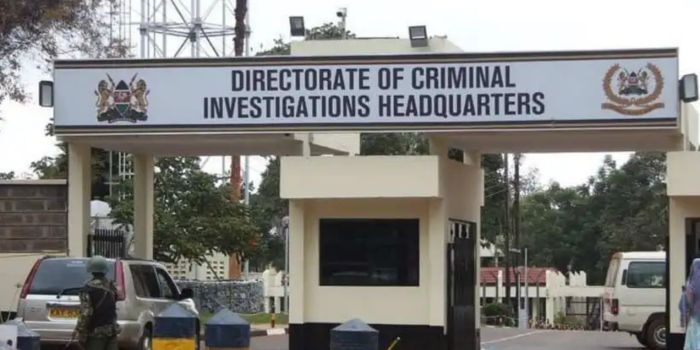The Directorate of Criminal Investigations (DCI) has strongly denied accusations that it secretly installed surveillance spyware on electronic devices belonging to four filmmakers associated with the BBC documentary “Blood Parliament.”
The controversy began when a forensic report, presented in court, revealed that commercial spying software had been found on one of the devices — a phone or laptop — while it was allegedly in police custody.
DCI Defends Itself in Court
Appearing before the court on October 1, DCI representatives stated that they had been legally granted a search warrant to examine the confiscated devices and insisted that no spyware was planted by officers.
“These claims are false. At no point did our officers install or use any spyware or unauthorized software on the seized electronics,” the DCI said in its official response.
The investigative agency added that the devices were only subjected to standard forensic examination, as permitted by the court order.
Filmmakers’ Lawyer Claims Otherwise
However, lawyer Ian Mutiso, who represents the four filmmakers, disputed the DCI’s position. He told the court that independent analysis conducted on the seized gadgets showed clear signs of spyware installation.
According to Mutiso:
- The spyware appeared to have been installed on May 21 at around 5:17 pm.
- The devices were returned to filmmaker and activist Bryan Adagala on July 10, shortly after his release from police custody.
Arrest and Seizure of Equipment
The four filmmakers — Bryan Adagala, Nicholas Wambugu, Chris Wamae, and Markdenver Karubiu — were arrested on May 2 during a police raid at their studio in Karen.
- They were detained overnight at Muthaiga and Pangani Police Stations.
- Their phones, laptops, hard drives, and production equipment were confiscated.
- They were later released without charges, and no official explanation was given for their arrest.
Spyware Concerns Raise Bigger Questions
Experts have noted that spyware tools — similar to the one allegedly found on the filmmakers’ devices — can be purchased online and installed easily on phones or laptops as long as someone has physical access to them.
This has sparked public concern about security agencies potentially misusing surveillance tools against journalists, filmmakers, and activists — especially those involved in sensitive investigations.
Join Government Official WhatsApp Channel To Stay Updated On time
https://whatsapp.com/channel/0029VaWT5gSGufImU8R0DO30


